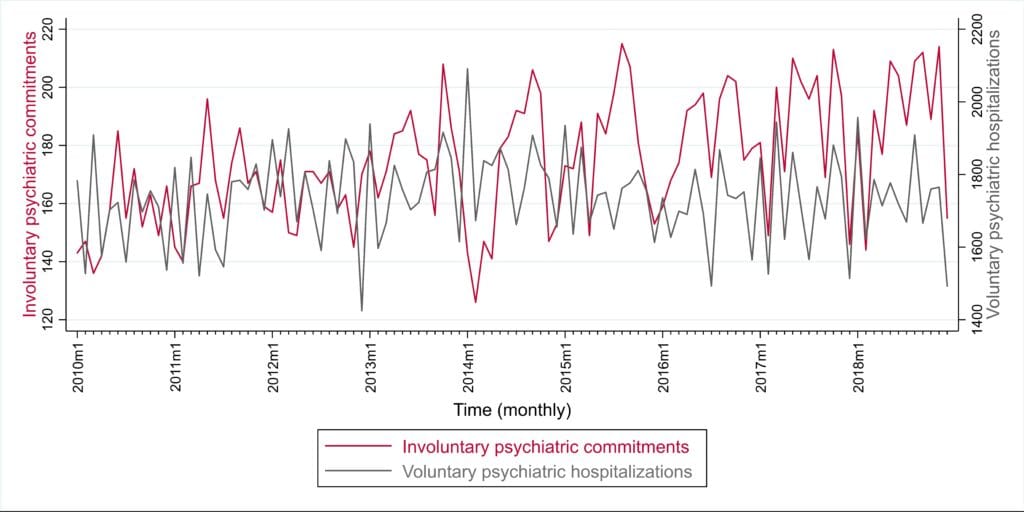Health Disparities
Involuntary psychiatric commitments following the Krudttønden attacks in Denmark Parvati Singh* Parvati Singh Geoffrey Carney-Knisely Lars H. Andersen Tim A. Bruckner
Terrorist attacks may reduce social tolerance of disordered behavior that, in turn, may increase involuntary psychiatric commitments in a population. We examine whether the Krudttønden terrorist attacks that occurred in February 2015 in Denmark correspond with a proximate increase in involuntary psychiatric commitments in the Danish population. We retrieved monthly count of involuntary psychiatric commitments (outcome) and voluntary (i.e. non-coercive) psychiatric inpatient admissions for Denmark from the Danish Psychiatric Central Research Register, from January 2010 to December 2018. We defined our exposure as a binary indicator of February 2015 (month of the Krudttønden terrorist attacks). Results from time-series analysis indicate 27 additional involuntary psychiatric commitments in February 2015 (p < 0.05), controlling for autocorrelation and the concomitant series of voluntary psychiatric inpatient admissions. We do not observe statistically detectable relations between the exposure and voluntary psychiatric admissions. Our findings suggest reduced social tolerance immediately following terrorist attacks.

